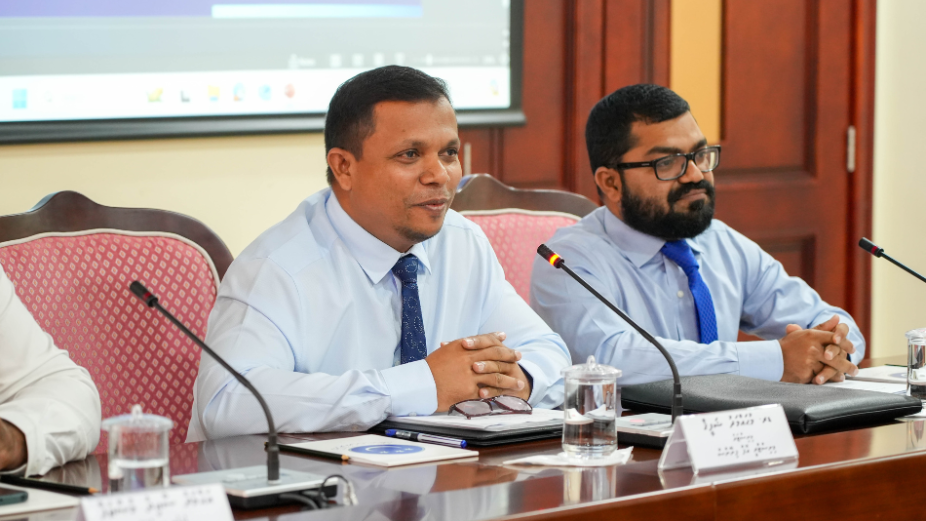
Finance Minister Dr. Mohamed Shafeeq announced yesterday that the government has decided to raise the Airport Development Tax (ADC) and Green Tax. The move is part of a broader strategy aimed at increasing foreign currency revenue, crucial for managing the substantial repayments due in the coming years.
Speaking before the Parliament’s Public Finance Committee on the Medium-Term Debt Strategy Statement, Dr. Shafeeq highlighted the pressing need to manage the country’s foreign debt, particularly with a looming repayment of USD 100 million in 2025, a total of USD 500 million due that same year. The situation is set to become even more dire in 2026, with the country facing a repayment of USD 500 million, bringing the total debt repayment to USD 1 billion over the two years.
To address these financial pressures, Dr. Shafeeq outlined a series of measures designed to boost revenue in foreign currencies without excessively burdening the Maldivian public. These include the proposed increase in airport development taxes and the adjustment of green tax rates. Notably, the revised Airport Development Tax will be structured to exempt Maldivians travelling in economy class, with the additional levy targeting first-class and business-class passengers as well as foreign travellers.
“The government’s goal is to continue generating revenue without overburdening citizens with taxes. There are no plans to raise GST, TGST, BPT, or withholding tax,” Dr. Shafeeq assured the committee, emphasising the importance of managing debt repayments in a sustainable manner.
The proposed measures are part of a broader fiscal strategy that includes the bolstering of the Sovereign Development Fund, a move intended to safeguard the country’s financial stability and prevent bankruptcy. “The looming debts in 2026 must be paid in dollars. The government is working towards building the Buffer Sovereign Development Fund, which aligns with the public’s interest,” Dr. Shafeeq stated.
During the session, Dr. Ahmed Shamheed, the Maldivian Democratic Party (MDP) MP for Hulhumale’ South Constituency, raised concerns about the impact of these changes on the tourism sector, which is a key driver of the Maldivian economy. He questioned the estimated revenue increase from airport development fees, projected to rise from USD 145 million to USD 251 million, and the plan to double the green tax. Dr. Shamheed stressed the importance of consulting with stakeholders in the tourism industry to ensure that the measures do not negatively impact the sector.
In response, Dr. Shafeeq reassured the committee that the rates would be reviewed in consultation with relevant stakeholders, including those in the tourism sector. He also affirmed that the government would consider the perspectives of parliament members before finalising the proposals.
The decision to raise these taxes, while aimed at increasing revenue, comes with potential risks, particularly concerning the tourism sector. The Maldives, known for its luxury tourism, may face challenges if the additional costs discourage high-spending tourists. On the other hand, the government’s focus on targeting non-economy class passengers and foreigners may mitigate the impact on average Maldivians while still generating the necessary foreign currency.
Moreover, the proposed increase in duties on harmful products, such as tobacco and vapes, is seen as a move to promote public health while also raising revenue. However, this could face pushback from certain sectors of the economy, including the retail industry.
The government’s broader economic strategy also includes efforts to reduce recurrent expenditure, particularly in areas deemed wasteful, such as healthcare and fuel costs. These measures, combined with the proposed tax adjustments, reflect a comprehensive approach to managing the country’s fiscal challenges.
As the Maldives navigates these economic hurdles, the success of these policies will hinge on their implementation and the government’s ability to balance revenue generation with the preservation of economic stability. The consultation with stakeholders and careful consideration of the tourism sector’s needs will be critical in ensuring that these measures do not stifle growth in one of the nation’s most vital industries.












